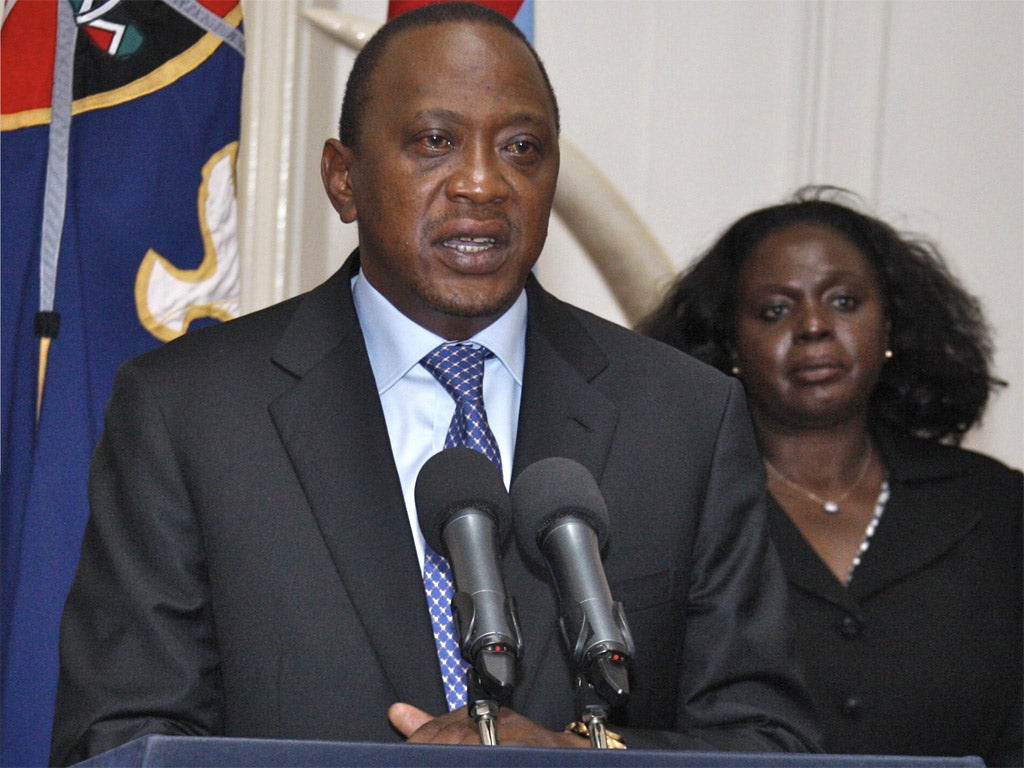Kenya shopping mall attack: Recriminations begin over handling of siege by authorities
As security forces battled militants they became embroiled in a Twitter propaganda war with al-Shabaab

As Kenya’s security forces comb the Westgate shopping centre for bodies and clues to the tactics the militants behind the country’s worst terrorist incident in 15 years, recriminations over handling of the siege have begun.
From the outset, the authorities appeared slow to act, entering the mall only an hour after the attackers started opening fire. As security forces battled militants, and tried to evacuate civilians, they became embroiled in a propaganda war with al-Shabaab, the Somali Islamist group that claimed responsibility for the attack, using Twitter to assert that it had the situation under control.
By Monday evening – the third day of the siege - official accounts suggested the operation was reaching a conclusion. “We’re in control of Westgate,” the Interior Ministry tweeted. Other official accounts tweeted messages of congratulation.
But it quickly emerged that the siege was not drawing to a close, with ongoing gunfire amid unofficial reports that some militants were still holding out against the military.
Al-Shabaab, meanwhile, responded with taunts, saying that the militants were walking around with “such sangfroid.” They claimed that they were holding dozens of hostages, contrary to official claims that almost everyone had been rescued.
When President Uhuru Kenyatta came on the air to pronounce defiantly that the siege over on Tuesday night, continuing gunshots appeared to belie his claim.
Some Kenyans took to Twitter to criticise the government’s slow response to the crisis, and for failing to give the public the full facts amid confusion about hostages, the identity of the militants, and whether some of the attackers had managed to escape.
Kenyan police apologised for the slow release of information, and urged the public to ignore al-Shabaab’s digital onslaught. A tweet on @PoliceKE read: “Security details are delicate matters & we assure Kenyans that the war on terrorism will be won if we work together ... We urge you to support our efforts to serve you better. As you criticise, offer solutions too.”
Within the government, which took power only seven months ago, there was confusion about the identities of the attackers. Foreign Minister Amina Mohamed said that a British woman had been among the attackers, but her colleague, Interior Minister Joseph Ole Lenku, said the attackers were all male, although some were dressed as women.
But it was the government’s security services that appeared the biggest casualty of events after failing to pick up any signals that an attack of such magnitude was in the works. Politicians rounded on the National Intelligence Service, or NIS, accusing it of incompetence, and even calling for its disbandment.
“I have heard my colleagues say that this is not the time for the blame game, but I want to say that this is the time to blame the NIS for the situation we have found ourselves in,” Kimani Ichung’wa, an MP in Kenya’s ruling coalition government, was quoted as saying in The Star newspaper.
Subscribe to Independent Premium to bookmark this article
Want to bookmark your favourite articles and stories to read or reference later? Start your Independent Premium subscription today.

Join our commenting forum
Join thought-provoking conversations, follow other Independent readers and see their replies